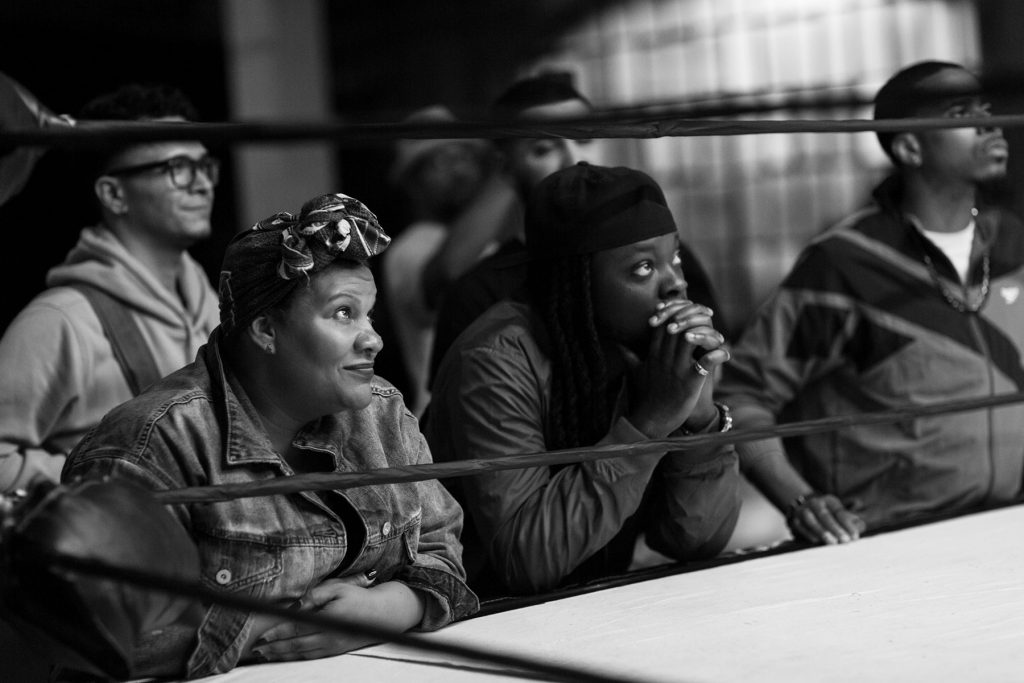The Forty-Year-Old Version may not land every punch it throws, but there’s a great deal to be taken from an incredibly fresh picture.
The Forty-Year-Old Version, a Netflix original and the directorial debut of writer/director/actor Radha Blank, documents the artistic struggles of a black, female playwright pushing the wrong side of 40, and her discovery of hip-hop as a creative outlet – far removed from the institutionally oppressive labyrinth of Broadway. Early on in the film, Radha (the character, that is; the most autobiographical of semi-autobiographical roles) is backstage at a showcase, preparing to perform music in front of a crowd for the first time. As the other rappers gather, they freestyle for each other to a mutual chorus of quiet appreciation. It’s a moment full of catharsis, full of freedom, full of respect; a calm before the storm that places us firmly in Radha’s shoes as she believes, for the very first time, that she belongs in this world.
The Forty-Year-Old Version is a film that feels incredibly fresh. It’s difficult to deny the power of Blank’s directorial voice – despite frequent, often biting nods to autobiographical directors such as Spike Lee or Woody Allen, the film feels uniquely and identifiably hers. It is frequently beautiful, too: the office of the OUmoja theatre, a pan-African institute where Radha has been afforded a workshop production, is as ornate and full of life as it is ramshackle, especially when compared to a Broadway foyer we are immediately thrust into, full of glitz and facade. Each of these is, of course, subjected to the same acidic gaze with which the film examines every aspect of the life of a New York woman of colour in the arts – especially the way in which white stakeholders manipulate and control the very art itself, and the necessity of sacrificing core meaning in the interest of being able to pay rent that month.

The film’s willingness to take risks, however, does rear its head as an issue whenever these risks don’t pay off. Shooting in 35mm black-and-white comes across with more gimmick than purpose, as the full power of the camerawork seems unexplored beyond an occasionally wonderful shot. Some dialogue, especially that of the high school students Radha teaches, can come across as stilted and slightly wooden, turning interactions excruciating for all the wrong reasons. Likewise, while the supporting cast is consistently excellent (particularly Reed Birney as liberal Broadway producer J. Whitman, with his insistence on rewrites and obsession with “poverty porn”), moments where things fall slightly flat are unfortunately not uncommon. As the film dives headfirst into these moments with the same confidence it brings to its peaks, a misstep becomes much more difficult to overlook.
However, these problems are all borne from the film’s desire to throw idea after idea into its own formula. It is always refreshing to watch a film that refuses to bow to prevailing trends or genres in the industry – while Netflix insists on calling it a comedy, The Forty-Year-Old Version is far more interested in interrogating an audience than entertaining them. There is, undoubtedly, a powerful voice here; it feels as though, quite soon, it will be impossible to ignore.

